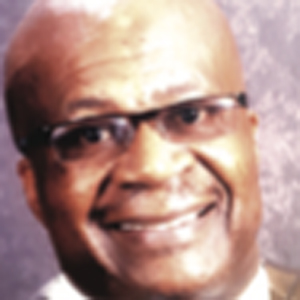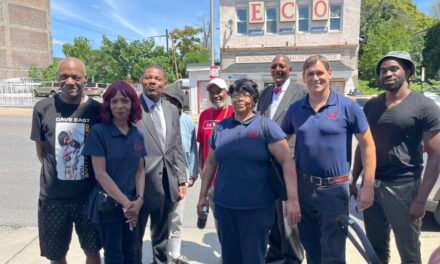Background Scripture: Psalm 119:73-80
Lesson Context: Psalm 119 is by far the longest poem in the Bible. Its length is due in part to the psalmist’s decision to write an acrostic psalm, in which lines would begin with successive letters in the Hebrew alphabet. This section of Psalm portrays God as the teacher and the human praying as the student in the school of life. The student learns the commandments, the Law of Moses, not merely as a set of arbitrary rules, but as a window into the meaning of life.
l. Request for Wisdom (Psalm 119:73-76):
A. “God and His Pupils (vv. 73-74). 73a. “Thy hands have made me and fashioned me.” David adores God as the God of nature and the author of his being: Thy hands have made me and fashioned me. Every man is as truly the work of God’s hands as the first man was. He addresses himself to God as the God of grace, and begs he will be the author of his new and better being. God made us to serve him and enjoy him, but by sin we have made ourselves unable for his service and indisposed for the enjoyment of him, and we must have a new and divine nature, otherwise we had the human nature in vain. (Matthew Henry Bible Commentary). 73b. “Give me understanding, that I may learn thy commandments.” The way in which God recovers and secures his interest in men is by giving them an understanding; for by that door he enters into the soul and gains possession of it. 74. “They that fear thee will be glad when they see me: because I have hoped in thy word.” The comforts which some of God’s children have in God, and the favours they have received from him, should be matter of joy to others of them. Paul often expressed the hope that for God’s grace to him, thanks would be rendered by many. (Matthew Henry Bible Commentary). From another point of view, this verse underscores the nature of the faithful community. This community exists because it has found hope in God’s promises, learning from divine revelation the vastness of God’s care for the creation and each human in it. (International Sunday School Lessons, KJV 2023-2024).
B. Trust in God (vv. 75-76): 75a. “I know, O Lord, that thy judgments are right.”
Still David is in affliction, and being so he owns, 1. That his sin was justly corrected: I know, O Lord that thy judgments are right, are righteousness itself. However, God is pleased to afflict us, he does us no wrong nor can we change him with any iniquity, but must acknowledge that it is less than we have deserved. We know that God is holy in his nature and wise and just in all the acts of his government, and therefore we cannot not but know, in the general, that his judgments are right, though, in some particular instances, there may be difficulties which cannot easily resolve. 2. That God’s promise was graciously performed. 75b. “And that thou in faithfulness has afflicted me.” The former may silence us under our afflictions, and forbid us to repine, but this may satisfy us, and enable us to rejoice, for afflictions are in the covenant, and therefore they are not only not meant for our hurt, but are really intended for our good. (Matthew Henry Bible Commentary).
76. “Let, I pray thee, thy merciful kindness be for my comfort according to thy word unto thy servant.” But trouble, though sweetened by an insight into God’s salutary design, is nevertheless always bitter; hence the well-justified of Psalm 119:76, that God’s mercy may withstanding be bestowed upon him for his consolation, in accordance with the promise which is become his. (Keil and Delitzsch Biblical Commentary on the Old Testament).
ll. Hope for the Future (Psalm 119:77-80):
A. The Righteous and the Wicked (vv. 77-78). 77a. “Let thy tender mercies come unto me, that I may live.” David prays for God’s merciful kindness (v.76), his tender mercies (v. 77). He can claim from nothing as his due, but all his supports under his affliction must come from mere mercy and compassion to one in misery, one in want, “Let these come to me,” that is, “the evidence of them (clear it up to me that thou hast a kindness for me, and mercy in store), and the effects of them, let the work my relief and deliverance.” 77b. “For thy law is my delight.” David declares, I hope in thy word and rejoice in that hope.” Those that delight in the law of God may depend upon the favour of God, for it shall certainly make them happy. (Matthew Henry Bible Commentary).
B. Trust in God (vv. 79-80): 79. “Let those that fear thee turn unto me, and those that have known thy testimonies.” David does not mean so much that they might side with him, and take up arms in his cause, as that they might love him, and pray for him, and associate with him. David desires especially the company of those that were not only honest, but intelligent, that have known thy testimonies, have good heads as well as good hearts, and whose conversation will be edifying. It is desirable to have an intimacy with such.
80. “Let my heart be sound in thy statutes; that I be not ashamed.” David’s prayer for sincerity, that his heart might be sound, that I fall not into scandalous sin, that I fall not quite off from the ways of God, and so shame myself. “That I be not ashamed.” Shame is the portion of hypocrites, either here, if Here is. (Matthew Henry Bible Commentary)












